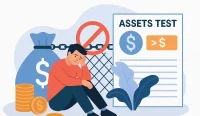Introduction
Bill Ackman is a name synonymous with bold investing, strategic thinking, and relentless pursuit of success. As the founder and CEO of Pershing Square Capital Management, Ackman’s journey from business school to Wall Street titan offers invaluable career lessons for job seekers aiming to build successful, resilient careers. In this post, we’ll explore actionable insights from Ackman’s professional path, focusing on learning from mistakes, self-directed learning, entrepreneurship, due diligence, identifying opportunities, and taking calculated risks. We’ll also provide practical advice for career development, skill building, and professional growth, along with a real-world example and an FAQ section to help you on your journey.
Learning from Mistakes: The Foundation of Growth
One of the most important lessons from Bill Ackman’s career is the value of learning from mistakes. Early in his career, Ackman faced setbacks, including high-profile investment losses. Instead of being discouraged, he analyzed what went wrong, adjusted his strategies, and emerged stronger. For job seekers, embracing failure as a learning opportunity is crucial. Every rejection, missed opportunity, or misstep can be a stepping stone to future success if you take the time to reflect and adapt.
- Tip: After every interview or project, ask yourself what went well and what could be improved. Keep a journal to track your progress and lessons learned.
Self-Directed Learning: Investing in Yourself
Ackman’s success is rooted in his commitment to continuous learning. He didn’t rely solely on formal education; instead, he sought out knowledge independently, reading extensively and seeking mentors. In today’s fast-changing job market, self-directed learning is more important than ever. Whether it’s mastering a new software, learning a language, or understanding industry trends, proactive learning sets you apart.
- Tip: Dedicate time each week to learning something new related to your field. Use online courses, podcasts, and books to expand your knowledge base.
Entrepreneurship: Thinking Like an Owner
Even before founding Pershing Square, Ackman demonstrated entrepreneurial thinking. He identified gaps in the market and wasn’t afraid to challenge the status quo. For job seekers, adopting an entrepreneurial mindset means taking initiative, being resourceful, and looking for ways to add value—whether you’re starting your own business or working within an organization.
- Tip: Treat your career as your own business. Set goals, measure your progress, and look for ways to innovate in your role.
Due Diligence: Making Informed Decisions
Ackman is known for his rigorous research and due diligence before making investment decisions. This principle applies to career choices as well. Before accepting a job offer, switching industries, or pursuing further education, gather as much information as possible. Understand the company culture, growth prospects, and required skills.
- Tip: Network with current and former employees, read company reviews, and research industry trends before making major career moves.
Career Lessons from Bill Ackman
Bill Ackman’s rise to the top shows the power of vision, persistence, and bold decision-making. Employers can apply these same lessons by hiring ambitious talent ready to take their business further. Post your job on WhatJobs today and connect with professionals eager to grow and lead.
Post a Job Free for 30 Days →Identifying Opportunities: Seeing What Others Miss
One of Ackman’s strengths is his ability to spot undervalued opportunities. For job seekers, this means looking beyond obvious roles and industries. Consider emerging fields, startups, or roles that leverage your unique skills. Sometimes, the best opportunities are those that others overlook.
- Tip: Regularly review job boards, attend industry events, and stay open to unconventional career paths.
Taking Calculated Risks: The Path to Breakthroughs
Ackman’s career is marked by bold, calculated risks. He doesn’t shy away from challenging the norm, but his risks are always informed by research and analysis. For job seekers, taking calculated risks might mean applying for a stretch role, relocating for a job, or switching industries. The key is to weigh the potential rewards against the risks and make informed decisions.
- Tip: List the pros and cons of each major career decision. Consult mentors or peers for perspective before making a leap.
Practical Advice for Career Development
- Set clear, measurable career goals and review them regularly.
- Build a strong professional network—relationships are key to uncovering opportunities.
- Develop both hard and soft skills. Communication, problem-solving, and adaptability are as important as technical expertise.
- Seek feedback and act on it. Continuous improvement is essential for long-term success.
- Stay resilient. The job market can be unpredictable, but persistence pays off.
Real-World Example: Applying Ackman’s Principles
Consider the story of Priya, a recent MBA graduate. Inspired by Ackman’s journey, she approached her job search with a strategic mindset. After several rejections, she analyzed her interview performance and sought feedback. She invested in online courses to fill skill gaps and networked extensively. Priya identified a niche role in a fintech startup that matched her interests and skills. Despite the risk of joining a young company, she did her due diligence and accepted the offer. Within a year, she was promoted, having demonstrated initiative and adaptability—key lessons from Ackman’s playbook.
FAQ: Career Development and Success
How can I learn from career setbacks?
Reflect on what went wrong, seek feedback, and use each experience as a learning opportunity. Keep a growth mindset and don’t be afraid to try again.
What skills are most important for career growth?
Both technical and soft skills matter. Focus on communication, problem-solving, adaptability, and continuous learning.
How do I identify the right opportunities?
Research industries and companies, network with professionals, and stay open to roles that align with your strengths and interests—even if they’re unconventional.
When should I take a career risk?
Take risks when you’ve done your research and believe the potential rewards outweigh the downsides. Consult mentors and weigh your options carefully.
Conclusion
Bill Ackman’s journey offers a blueprint for job seekers aiming to build successful, fulfilling careers. By learning from mistakes, investing in self-directed learning, thinking entrepreneurially, conducting due diligence, spotting opportunities, and taking calculated risks, you can set yourself apart in today’s competitive job market. Remember, your career is a marathon, not a sprint—embrace the journey, keep learning, and never stop striving for growth.




